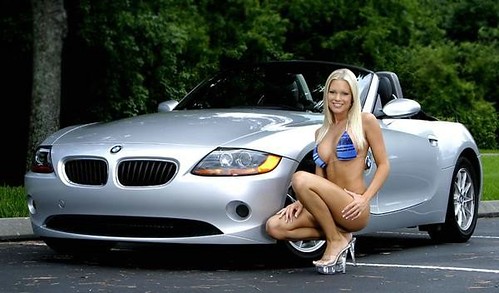 SEAT Ibiza Ecomotive, 74.3mpg
SEAT Ibiza Ecomotive, 74.3mpgThe Spanish company's tidy 3-door supermini shoots straight to the very top of our fuel-efficiency list, courtesy of well-judged aero mods and an incredibly economical 1.4-litre turbodiesel engine. Gear ratios normally seen on intercontinental trains, + tweaks here and there to reduce friction, boost economy to a remarkable 74.3mpg.
But do not think it is slug-like. It still hits 60mph in 12.8 seconds and goes on to 109 mph. When has economical driving ever been this satisfying? It even gets air con as standard, for £10,995 all-in. Impressive enough for MSN Cars to consider running one as a long-termer! Watch this space...
 Volkswagen Polo BlueMotion, 74.3mpg
Volkswagen Polo BlueMotion, 74.3mpgThe Polo achieves exactly the same fuel returns as the SEAT, and also beat it to market. So why is not in top? Because of the small matter of over £1k extra on the asking price. And a lack of standard air con. Yes, we know it is a Volkswagen, and it has better-quality plastics inside.
The keyfob that shopkeepers in Mayfair will not get sniffy about helps. But really, they are the same car underneath, and feel little different to drive. Fuel economy is just as much about saving money as it is about saving cash: therefore, if the Polo is for you, hot-foot it... to your local SEAT dealer.
 MINI Cooper D, 72.4mpg
MINI Cooper D, 72.4mpgBMW's EfficientDynamics programme has extended down to the MINI with dramatic effect. It is now the most economical car the company produces, with 72.4mpg attainable from its 1.6-litre diesel engine. Tricks such as automatically turning off the engine at traffic lights help here.
But do not think the MINI has become a dullard because of them. It is well up for the traffic light GP; courtesy of 110bhp, it is able to hit 60mph in 9.9 seconds. We know, this does nothing for fuel economy, but MINI driving's inevitably as much about fun as it is about fuel economy.
 Skoda Fabia Greenline 68.9mpg
Skoda Fabia Greenline 68.9mpgThe Skoda adopts a similar approach to its brethren from VW and SEAT, using the same engine and extended gear ratios. But it's a bit larger than them, and doesn't quite have the same amount of weight-stripping - so economy isn't as jaw-dropping as the other two. Not that 68.9mpg is disastrous.
And it may appeal more than them, because it feels that bit more grown up. The newer platform drives better, and a more modern appearance means it won't feel as dated and stripped-down as the SEAT. It also has the all-important air con as standard. Fine practical, sensible, green motoring.
 MINI Clubman Cooper D, 68.9mpg
MINI Clubman Cooper D, 68.9mpgThe Clubman is one of the coolest things in town. And while it can not match its dinkier, lighter baby brother for economy, it is still way beyond anything you could achieve in most other cars. The diesel engine officially averages just under 69mpg here - and this time, you can realistically bring along mates and luggage.
OK, it is still not Tardis-like, but the added extra space makes it a much more useful machine. You can, basically, get things in. Something you are hard-pressed to do in the hatch. The green status it commands means that following fashion needn't be a jet-engined flight of environmental fancy.
 Citroen C1/Toyota Aygo 1.4 HDi, 68.9mpg
Citroen C1/Toyota Aygo 1.4 HDi, 68.9mpgOnly Citroen offers a diesel version of its tiny joint-venture city car. It'll cover no less than 68.9 miles to each gallon of fuel - that's twice the distance a 2.0 Seat Leon can do, and four times what an Aston Martin DB9 is capable of. And they won't be miserable miles, either.
The C1 handles well and begs to be chucked into corners, while the stylish cabin is minimalist, not cheap. Indeed, the only problem is the £1,000 cost over the 61.4mpg-capable fuel, which is a nicer engine to use. If total economy is nt everything, we'd save the cash and take the petrol over the HDi.
 Citroen C2 1.4 HDi, 68.9mpg
Citroen C2 1.4 HDi, 68.9mpgThose who find the C1 too compact needn't feel left out. A car with exactly the same economy (but slightly higher CO2 emissions) is available. And, in the mad world of Citroen cashback deals, for less outlay. It's a supermini but strictly a four-seater, that feels more planted but is a little less fun than the C1.
No matter. Instead, drop on a bodykit and some twenty one-inch wheels, darken the glass and screw in a kick-ass stereo system, to become the greenest, cleanest boy racer in the land. We are sure, with a cunningly-fitted turbo wastegate bypass, it will even sound hornier than the 1.4 petrol you'd otherwise buy...
 Fiat 500 MultiJet, 67.3mpg
Fiat 500 MultiJet, 67.3mpgLike the MINI, Fiat's fantastic 500 is another must-have car - which proves that following fashion doesn't always have to cost the earth. And we do not just mean literally. Not only does it, in 1.3-litre diesel guise, average 67.3mpg, it is also available for just £9,300 on the road.
Throw in the opportunity to bedeck the interior with a catalogue store full of jewellery, and city centres are all but guaranteed to be packed with the things. Which makes it all the more admirable that Fiat's endowed it with such efficiency. For once, substance as well as style.
 Fiat Panda 1.3 MultiJet, 65.7mpg
Fiat Panda 1.3 MultiJet, 65.7mpgIn Italy, everyone drives flat-out on the Autostrada, two inches from the rear bumper of the car in front. At least with a Panda diesel (which, if your eyes are at all open, you will spot in Italy), Fiat's helping do this more efficiently. Even if they will still be some way from the official 65.7mpg average.
A 5-door city car that is surprisingly spacious, with a pleasant 'big car' feel, the very fact that it is Italian means it is a cool little thing too. And the gem of an engine makes you suffer for such frugality not one jot. A genuine alternative to the 500, simply with show traded for sensibility.
 Mazda 2 TD, 65.7mpg
Mazda 2 TD, 65.7mpgMazda designed the current two supermini to be lightweight and fuel efficient. Courtesy of a diesel engine shared with Ford, Peugeot and Citroen, the claims bear out: 65.7mpg is pretty impressive for a conventional five-door supermini. It also looks, to our eyes, really nice, while the sporty, taut chassis makes it fun to drive.
Mazda engineering means bombproof build and the ability to withstand the merciless rigours of city-centre motoring without batting an eyelid, too. The interior may look and feel plasticky, but it won't fall apart around you. Factor in surprising space-efficiency and you have a very impressive sub-£10k green star.














